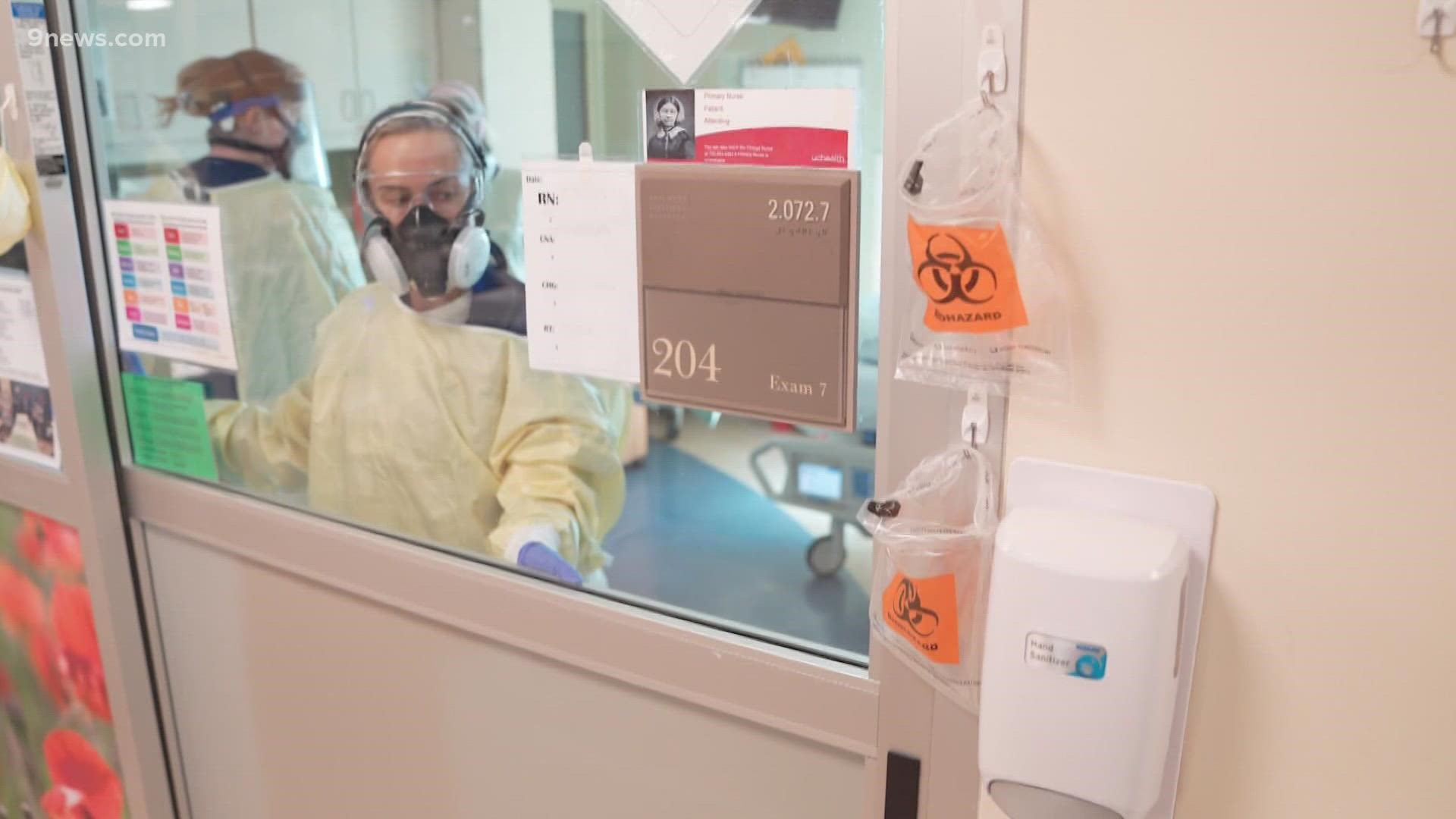DENVER — As COVID-19 hits crisis levels in Colorado, the state re-activated its Crisis Standards of Care for staffing this week. Now, the team that helped write the pandemic standards is revisiting them to look at how care in hospitals may need to change in the future if things get worse.
“This is crisis standards of care for hospital decision making, which is not currently active," said Dr. Anjuj Mehta, a critical care pulmonologist at Denver Health who was going through a draft of standards on Thursday afternoon over Zoom.
According to the state, the document Mehta and other health and ethics experts are revising would only become active if hospitals and acute care facilities are full.
In an emailed statement, CDPHE wrote "the state has the authority to enact crisis standards of care when resources are scarce. There are many different types of crisis standards of care. We are doing everything possible to avoid having to enact crisis standards of care for hospitals and acute care facilities, which would be used to determine prioritization of care if hospitals are entirely filled."
Experts are working to get ahead of that crisis in case it comes, and they say the worst-case scenario is different from how the pandemic looked in 2020.
"This is different than the ventilator decisions about who is most likely to die," Mehta said. "This is who is the most likely to be fine, without the intervention?"
Dr Matt Wynia, Director of the Center for Bioethics and Humanities at CU Anschutz, said because of that change from predicting mortality to predicting who will be okay without certain services, socioeconomic status needs to be a factor.
“I would hate to use a criterion that was purely clinical and end up sending someone home who's homeless, and keeping someone in the hospital who is wealthy and could very well afford to have someone come and check on them at home," Wynia said.
The experts at Thursday's meeting also talked about vaccination status, and whether that should be a factor if care needs to be prioritized.
“I think a lot of people have a gut reaction about this idea that people that have chosen not to get vaccinated are burdening the rest of those systems," Mehta said. "You know, our ethical principles are to save the most lives, not to evaluate social responsibility."
Mehta believes, at least for now, vaccination status should not be a part of those decisions. But he urged the other experts to email him if they didn't feel comfortable sharing their thoughts publicly.
The current crisis standards for staffing that are activated give hospitals flexibility to move staff, offer guidelines for family members to help instead of workers, and provide legal protections if and when the care isn’t up to normal standards.
SUGGESTED VIDEOS: COVID-19 Coronavirus

